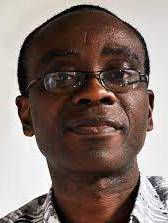By Amos Odhe, Yenagoa
Health of Mother Earth Foundation (HOMEF), an environmental rights focused group has concluded training of some 40 residents of oil bearing communities in Delta and Bayelsa states.
Addressing volunteers drawn from Gbarain/Ekpetiama in Bayelsa State and Iwhrekan in Delta State, Dr Nnimmo Bassey, executive director of HOMEF noted that a safe environment was fundamental to support life and livelihood.
He said that there was a need for people who reside near oil and gas fields to remain vigilant and observant to conserve the environment and ensure that the economic interests of investors do not threaten the environment.
Bassey who holds the national honour of Member of Order of Federal Republic (MFR) for environmental activism noted that there is a need to raise volunteers who will defend the ecosystem from degradation and pollution.
He noted that Iwhrekan and Gbarain gas fields constitute the dominant gas flare sites in the Niger Delta and hence residents from the areas require capacity building on environmental management.
He advised them to develop their skills to “listen to the environment” as it responds and speaks by responding to human activities that distort the ecosystem.
Also addressing the participants, Mr Alagoa Morris, an environmentalist said that monitoring the environment demands factual and evidence based data collection, recording and reporting.
“In journalism, the media professionals say that facts are sacred, and that is even much more applicable and I will say that in advocating for environmental justice, facts are more sacred.
“I say so because there is no room for false and misleading information because all facts must be validated at various stages including litigation and even exaggeration are strongly discouraged.
“Environmental monitoring is evidence based and empirical, and it makes the information stand the test of time,” Morris said.
Mr Ken Henshaw, a civil society activist who examined the imperatives of the divestment by oil firms from onshore assets and the Petroleum Industry Act (PIA) urged communities to brace up for challenges in the new era.
Henshaw noted that the new law which recommends a three per cent operational budget as host community funds left the constitution of the governance structures largely in the hands of oil firms.
He observed that the PIA is silent on existing corporate social obligations operated by oil firms.
Mr Cadmus Alake-Enade, project lead, Fossil Politics and Climate Change at HOMEF took the participants through the steps and procedures in environmental monitoring and reporting.
Alake-Enade urged them to be observant about changes in their environment and record same over time to establish a trend.
The interactive segment of the training had the volunteers from the two states share experiences and adverse impacts of oil and gas exploration on their environments.
 PH Mundial – Port Harcourt Online Newspaper News Across The Region
PH Mundial – Port Harcourt Online Newspaper News Across The Region





